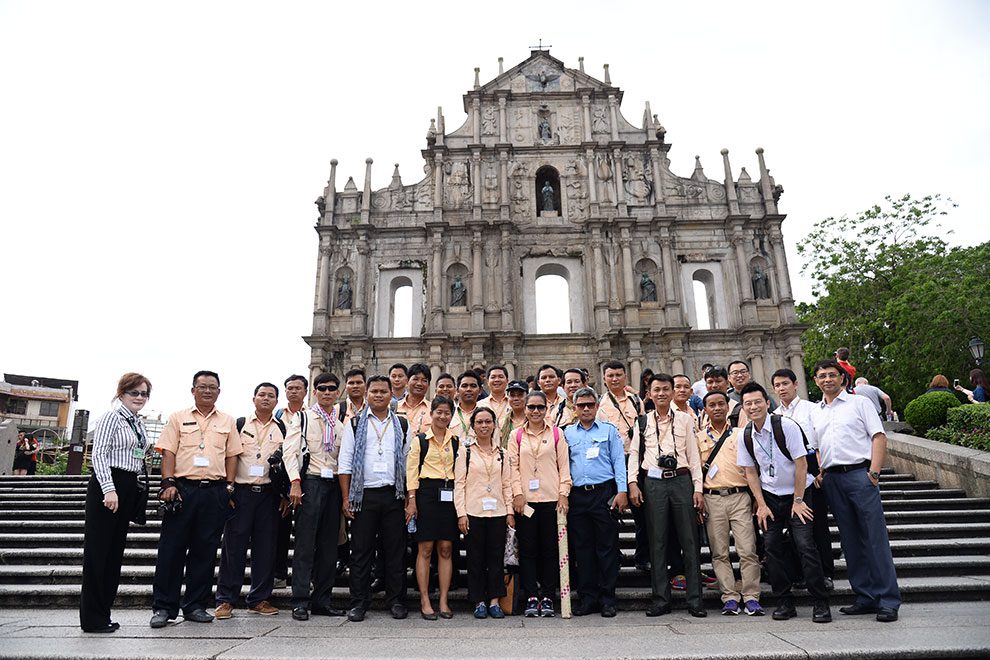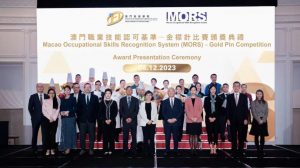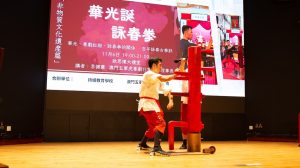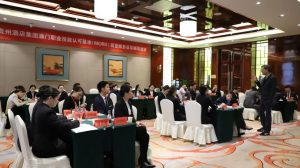These are important times for IFT: the Macao SAR Government in October revised the Institute’s statutes, allowing it formally to establish research centres. The move paves the way for IFT to push ahead with efforts further to boost its international profile.
Following the regulatory change, the Institute will soon establish a Global Centre for Tourism Education and Training. The centre was first announced in October 2015, as part of a memorandum of understanding signed at the time between the Macao SAR Government and the World Tourism Organization (UNWTO). The agreement envisioned the enhancement of human capital and the promotion of sustainable tourism in the Asia Pacific region.
The centre will provide training and education programmes in cooperation with UNWTO, and will also carry out joint tourism research projects. The centre’s aim is to ensure Macao “plays a leading role” in education and training in Asia, helping to improve the capabilities of tourism officials from developing countries, says IFT Visiting Professor Dr. John Ap. He will head the body once it is formally established.
Work on this process has already been under way for several months. In June, IFT organised a 7-day professional training programme tailor-made for a group of 20 tour guides from Angkor, in Cambodia. A total of 4 officials from the APSARA National Authority – the Cambodian management authority responsible for the protection of the Cambodian temple complex – also attended the Macao-based course.
Another training course is scheduled for November. It will focus on tourism capacity building for government and public officials. The workshop is designed to provide participants with knowledge about key aspects of the tourism industry as well as to offer them some hands-on training. UNWTO member states sending representatives to Macao to participate in the November workshop include: Afghanistan, Bhutan, the Democratic People’s Republic of Korea, Iran, Mongolia, Nepal, Papua New Guinea.
Win-win development
Dr. Ap says the establishment at IFT of the Global Centre for Tourism Education and Training is a positive development for the Institute.
“It is about enhancing IFT’s reputation in terms of our capabilities and what we are able to offer, not only to our community in Macao, but also internationally,” he says. “Another thing is that, in developing these capabilities, I see it as a means of drawing and attracting additional senior level faculty staff to IFT.”
The centre is expected to produce further positive outcomes for Macao, according to Dr. Ap. “It will enhance our reputation as an international tourist and leisure destination, as is the aim of government policy,” he says. “Also, it will give us a better understanding of what is happening in other parts of the world regarding tourism development.”
Dr. Ap adds: “These might not be immediate, livelihood-related benefits, but most of them will be long-term and sustainable.”
The scholar has had an extensive international career, including stints working in Hong Kong and in Qatar. Before becoming an academic, he was a town planner in Australia, specialising in recreation and tourism planning. Dr. Ap has also served as a consultant to several organisations, including the International Association of Amusement Parks and Attractions and UNESCO.
He says IFT is already playing an important role in tourism education in the Asia Pacific region. “Many Macao people may not realise it, but IFT has a good brand name and good reputation, being well regarded by other Asian academic institutions,” Dr. Ap says.
Leading the way
The establishment of the Global Centre for Tourism Education and Training is the latest step by IFT to position itself as an international training and education hub. The Institute has been advancing with a range of measures to ensure it is – and remains – relevant globally in those fields.
Efforts by IFT to raise its international profile are supported by the Macao SAR Government. “In order to improve Macao’s competitiveness as a tourism destination and raise the quality of human resources in the region, IFT will further strengthen cooperation with international organisations,” Macao’s Chief Executive, Dr. Chui Sai On, said during the Institute’s Graduation Ceremony 2016, held in October.
In recent years, IFT also became an important venue for international conferences involving tourism and hospitality specialists. The conferences make IFT more conspicuous in the academic world, present to tourism professionals at large the latest achievements of its faculty and research staff, and promote the exchange of ideas between experts from all over the globe.
The Institute is additionally involved in the Cultural Heritage Specialist Guide Training and Certification Programme, a UNESCO initiative unique to the Asia-Pacific region, and which was launched in 2005. As the regional focal point for the initiative, IFT has helped to implement and customise the specialist guide training programme for specific World Heritage sites in Mainland China, Bangladesh, Bhutan, Cambodia, India, Indonesia, Laos, Malaysia, Nepal, the Philippines, Sri Lanka, Thailand and Vietnam.
IFT also has been extending its “Macao Occupational Skills Recognition System” – a vocational training and certification system for the tourism industry – to neighbouring cities in Guangdong Province, including Zhuhai, Nansha and Guangzhou.
IFT President Dr. Fanny Vong says IFT will remain committed to enhancing its international position in the field of tourism education. “As an institution of higher education focused on nurturing talent, we should be far-sighted and should never stop moving forward,” she stated at the Institute’s Graduation Ceremony 2016.









